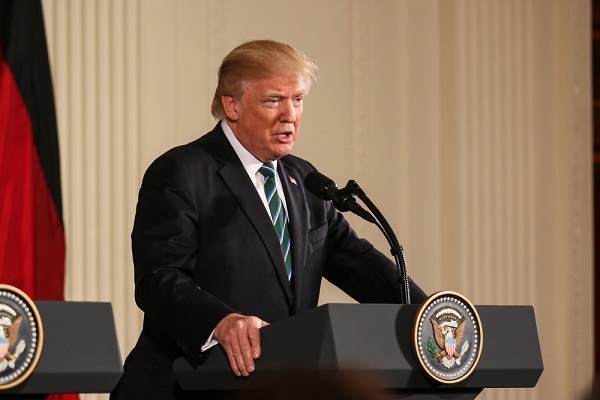Will One of Trump’s Top Tax Breaks Get the Axe?

As the new president and his administration continue to tout their big plans for a major tax overhaul in the U.S., it remains to be seen if the proposals will get passed in the House and Senate. While both branches of government are all for tax code reform, there are still differences that must be overcome. For example, House Republicans are currently weighing the possibility of killing one of President Trumps’ personal favorite tax deductions.
This tax provision has been around for hundreds of years and it has been a huge boost to the president’s real estate fortune. However, it could become one of the biggest tax fights in Washington in the coming months. According to reports, in order to offset the proposed reduction in the nation’s corporate tax rate, the House would like to use the $1 trillion that would be raised by ending a deduction for businesses’ interest expenses.
While doing so would help fund the government and its programs, there are several industries that are already clamoring for the deduction to be retained as is, including private equity companies, real estate moguls, and even farmers – all of which claim that they have to borrow money in order to operate. They fear huge tax increases if the deduction is removed.
So far, Republicans are divided on the issue, while the president himself has long supported the deduction for obvious reasons. His Treasury Secretary has said that they prefer to keep it in place but that all options are still open. Stay tuned, because this could end up being a big fight in the nation’s capitol.
The IRS is Not a Bully – You can poke a bully in the nose.
The IRS is Not a Bully You can poke a bully in the nose. This is the third installment of “The IRS is Not a Bully” series, identifying taxpayer concerns and the difficult position in which Congress puts the IRS. Namely, applying ever increasing pressure to operate in ways its founders never intended, until it’s…
Could You Pay More to Drink Soda in Berkeley?
Could You Pay More to Drink Soda in Berkeley? We all know that obesity is a problem in our country. Activists and other interested parties continue to work on ways to help curb this growing problem. Indeed, obesity is neither good for individuals or for our country. However, would creating a new tax to help…
What Happened to California’s Tax Revenue in May?
Where has all of California’s money gone? Ok, so the state isn’t bankrupt or anything like that, but according to recent reports, the state’s tax revenues fell short by 5.5 percent in the month of May. That marks the first time in six months that California’s revenues have not reached expectations. In fact, that 5.5…
Beware the Pump: Another Gas Tax Is on the Way
If you’ve had enough with California’s high gas prices, then you might not want to keep reading, because just when you thought things couldn’t get any worse, they are about to. That’s because when 2015 rolls around California residents are going to have to pay another new gas tax. In fact it’s a double-digit hike…




